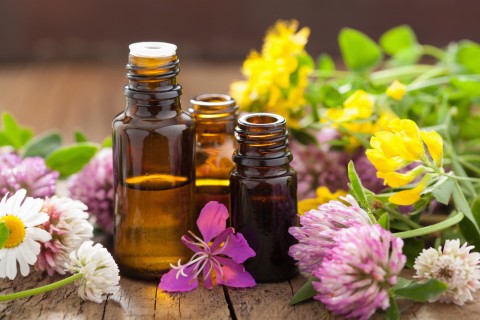Know the Essentials About Essential Oils

Much like the coconut oil craze that is making its way into homes across the country, so too is the surge in popularity in essential oils for treating everyday maladies. But while essential oils may smell nice, can they really cure anything?
Do They Work?
To answer if essential oils work, you first need to ask what you’re trying to get them to work for. If you are looking for something that smells pleasant and helps you relax, then yes, essential oils have been found to be effective. In fact, for some patients with dental anxiety, diffusing or sniffing essential oils prior to a procedure may help to keep them feeling calm and centered.
However, for other purposes, such as healing cavities or other oral injuries, unfortunately, there has been no scientific proof that these oils help in any way. Some oils that are purported to have healing properties for oral care are:
- sage oil – said to fight gingivitis
- peppermint oil – said to be antimicrobial
- cinnamon oil – said to be antimicrobial
- eucalyptus oil – said to kill the streptococcus mutans bacteria
- clove oil - said to kill pain and be antimicrobial
Studies have shown that oils such as eucalyptus and cinnamon oil both can kill streptococcus mutans, the bacteria responsible for causing cavities in your teeth, but to do so, they must be 100 percent pure oils, and used as directed. For other oils, very little data exists proving whether or not they are truly effective.
Are They Safe?
Another complicated question is whether essential oils are a safe way to treat oral health problems. The answer is yes and no. If used correctly, they can be very safe, however they may not be effective. On the other hand, oils can be extremely dangerous if not used as directed. It is very easy to become ill if you use too much oil to treat an injury, and ingesting or applying some oils to open wounds or burns can cause illness or infection.
Another danger of essential oils is that some oils may have a negative interaction with some prescriptions patients may be taking. For example, some antidepressants, anticonvulsants and liver and kidney drugs can have dangerous interactions if used with essential oils.
Furthermore, because these oils are plant based, it is not uncommon for patients to be allergic to some oils without even realizing it. Because allergies can develop at any age, you can develop an allergy to your favorite essential oil, even if you used it with no trouble a month ago.
Should You Choose to Diffuse?
Ultimately, it is up to you whether or not you want to add essential oils to your healthcare routine, however given the lack of solid data either way, it may be safest to skip the oils, or to keep them confined to your diffuser unless you have training in their proper use. If you do choose to diffuse oils, be sure to read the instructions on both the oil and your diffuser, and if you notice any negative change in how you are feeling immediately discontinue using the diffuser and call 911 or your doctor.
There are many natural ways to help improve your oral health. If you are interested in learning which natural products and methods are safe, give Dr. Lederman’s office a call at 516-882-1764.



